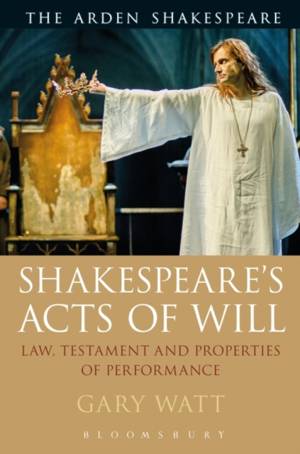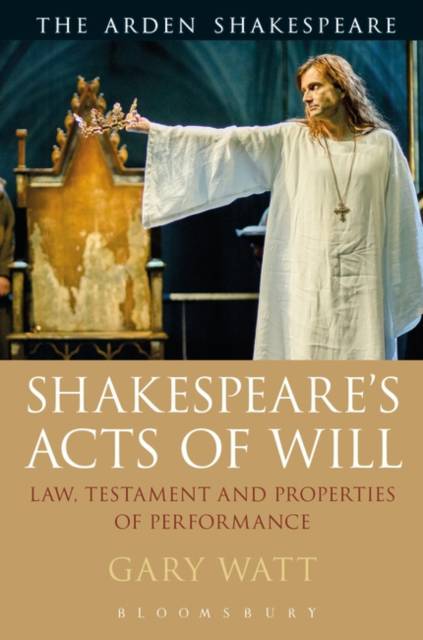
Bedankt voor het vertrouwen het afgelopen jaar! Om jou te bedanken bieden we GRATIS verzending (in België) aan op alles gedurende de hele maand januari.
- Afhalen na 1 uur in een winkel met voorraad
- In januari gratis thuislevering in België
- Ruim aanbod met 7 miljoen producten
Bedankt voor het vertrouwen het afgelopen jaar! Om jou te bedanken bieden we GRATIS verzending (in België) aan op alles gedurende de hele maand januari.
- Afhalen na 1 uur in een winkel met voorraad
- In januari gratis thuislevering in België
- Ruim aanbod met 7 miljoen producten
Zoeken
Shakespeare's Acts of Will
Law, Testament and Properties of Performance
Gary Watt
Paperback | Engels
€ 81,45
+ 162 punten
Uitvoering
Omschrijving
Shakespeare was born into a new age of will, in which individual intent had the potential to overcome dynastic expectation. The 1540 Statute of Wills had liberated testamentary disposition of land and thus marked a turning point from hierarchical feudal tradition to horizontal free trade. Focusing on Shakespeare's late Elizabethan plays, Gary Watt demonstrates Shakespeare's appreciation of testamentary tensions and his ability to exploit the inherent drama of performing will.
Drawing on years of experience delivering rhetoric workshops for the Royal Shakespeare Company and as a prize-winning teacher of law, Gary Watt shows that Shakespeare is playful with legal technicality rather than obedient to it. The author demonstrates how Shakespeare transformed lawyers' manual book rhetoric into powerful drama through a stirring combination of word, metre, movement and physical stage material, producing a mode of performance that was truly testamentary in its power to engage the witnessing public.
Published on the 400th anniversary of Shakespeare's last will and testament, this is a major contribution to the growing interdisciplinary field of law and humanities.
Drawing on years of experience delivering rhetoric workshops for the Royal Shakespeare Company and as a prize-winning teacher of law, Gary Watt shows that Shakespeare is playful with legal technicality rather than obedient to it. The author demonstrates how Shakespeare transformed lawyers' manual book rhetoric into powerful drama through a stirring combination of word, metre, movement and physical stage material, producing a mode of performance that was truly testamentary in its power to engage the witnessing public.
Published on the 400th anniversary of Shakespeare's last will and testament, this is a major contribution to the growing interdisciplinary field of law and humanities.
Specificaties
Betrokkenen
- Auteur(s):
- Uitgeverij:
Inhoud
- Aantal bladzijden:
- 304
- Taal:
- Engels
Eigenschappen
- Productcode (EAN):
- 9781350059573
- Verschijningsdatum:
- 25/01/2018
- Uitvoering:
- Paperback
- Formaat:
- Trade paperback (VS)
- Afmetingen:
- 127 mm x 203 mm
- Gewicht:
- 294 g

Alleen bij Standaard Boekhandel
+ 162 punten op je klantenkaart van Standaard Boekhandel
Beoordelingen
We publiceren alleen reviews die voldoen aan de voorwaarden voor reviews. Bekijk onze voorwaarden voor reviews.









